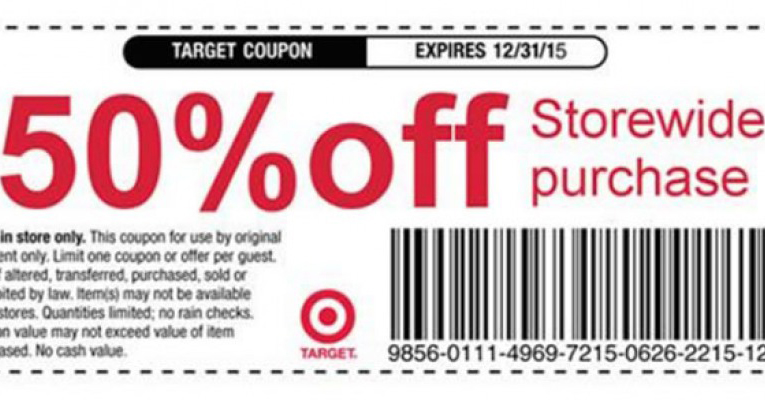Fake coupons have become more prevalent as more and more companies offer discounts and deals online — but how do you tell the difference between the fakes and the real things?
Videos by Rare
In the best case scenario, you just don’t get the discount. But in the worst case, clicking on a fake coupon could leave you with malware on your device — potentially giving scammers access to your personal information and any account or other information stored in that device.
And this is the case with pretty much anything you do online these days. Paying close attention to the types of links you click on in emails and on social media is crucial to protecting your information and your safety.
So to avoid both the annoyance and potential dangers that stem from fake coupons, here are some tips to help you spot them.
1. Use your gut.
Seriously. When you take a moment to think and realize there’s something kind of “off” about something, it usually triggers a common sense hesitation, right?
Well, just like most things in life, that may be easier said than done — especially when you’re already thinking about how much you could buy with that incredible deal of 50% off everything at Target or Kroger just for liking their Facebook page. And it doesn’t mean that those great deals aren’t out there, but before you click on any “incredible” offer, at least take a few moments to think about the probability that an offer that good could exist in real life.
One example is a fake Target coupon offering 50% off anything that was circulating on Facebook recently.
2. If it says “free” — it probably isn’t.
Coupons for free items do exist, but they’re usually for new and/or small products.
3. Check the expiration date.
Unlike gift cards, coupons can still have expiration dates — and most do. So if you see a great coupon that has no expiration date, that’s a red flag.
If it does have one, make sure to look at it carefully. One glance at a coupon that expires on 2/30/16 might be enough to convince you that it’s fine to click on — but once take a moment to think — wait a minute…
Also, coupons for free items typically expire sooner rather than later. So if it doesn’t expire until 2020, it’s probably a fake.
4. Check the source.
If an online coupon doesn’t come directly from the company’s website or a legitimate coupon site like Savings.com, then don’t click on it!
Here are a couple of ways to identity a legitimate source:
If it says it’s directly from the company, go to the company’s website directly to check.
Search for reviews of any source you don’t recognize and/or check with the Better Business Bureau online here.
If the coupon is sent via email, it’s important to verify the source. Scammers can make the source of a fake email look legitimate, but if you hover your mouse over the link in the email, you can see the real destination on the lower left corner of your email screen. And if the destination of the link looks a little wonky, don’t click on it!
5. Check the CIC.
The Coupon Information Center has a blacklist of known counterfeit coupons. Check the list here for anything you may be uncertain about.
Important note: While the CIC is a great resource, it may not pick up fake coupons as quickly as they are being circulated on social media and via email. So if a coupon you see isn’t on that list, it doesn’t necessarily mean it’s real. The CIC list is also a great way to familiarize yourself with the types of fake offers out there, in order to spot similar ones in the future.
RELATED: Apple email scam is stealing users’ information



